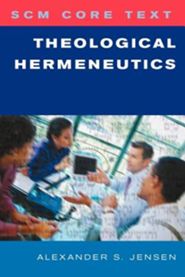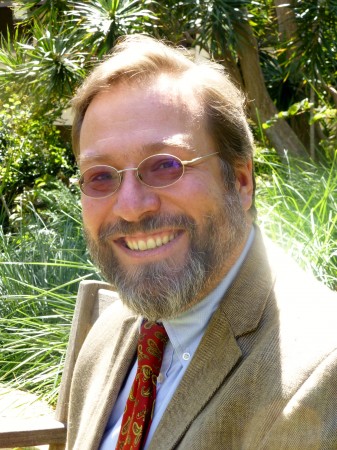Alexander Jensen: Theological Hermeneutics
 Alexander Jensen, Theological Hermeneutics (London: SCM, 2007), 237 pages, ISBN 9780334029014.
Alexander Jensen, Theological Hermeneutics (London: SCM, 2007), 237 pages, ISBN 9780334029014.
Alexander Jensen’s Theological Hermeneutics is a historical introduction to theological hermeneutics, which Jensen defines as the way in which the problem of understanding has been addressed (2). The book surveys key theological hermeneuts and movements from antiquity, to the watershed that was the Enlightenment, up to the present postmodern context. Jensen argues that theological hermeneutics must be critical (214).
Beginning with his discussion on “Hermeneutics in Antiquity,” Jensen convincingly argues that criticism has always been present throughout the history of hermeneutics. Indeed, he shows that despite the popular impression of pre-moderns as not being critical interpreters, there have always been critical interpretations from antiquity until the Enlightenment. For example, because a literal interpretation of the text was not always amenable to interpreters, the criticism of allegorical interpretation dominated antiquity. And critical methods were developed to criticize allegorical interpretation.
Perhaps the most pivotal insight into hermeneutical thinking and criticism, however, came about as a result of Augustine’s recognition that language is imperfect and the spoken word does not perfectly convey one’s thought. In other words, the listener or reader will never arrive at the speaker’s or author’s thought, but can only approximate it (47). Jensen appropriately emphasizes that this understanding has guided hermeneutical thinking to the present, that is, except for a notable exception during the Enlightenment era.

Alexander S. Jensen is Senior Lecturer in Systematic Theology at Murdock University in Perth, Western Australia.
Before discussing this exception, however, Jensen’s survey highlights the fact that the discovery of errors in authoritative texts led Medieval and Reformation interpreters back to the sources (ad fontes). So the Bible and the Patristic tradition were used to critique texts. Therefore, Reformation hermeneutics, commonly considered to be based on sola scriptura also had its critical element of the “purified” tradition.
But a notable exception to the need for critical hermeneutics occurred during the Enlightenment. To be sure, the Enlightenment did usher in the Modern era of explicit historical criticism attributable to the development of Baconian scientific method, and Cartesian rationalism that suggested human reason is the ultimate authority. However, the realism of the Scottish Enlightenment and Thomas Reid’s “common sense” philosophy, again, contrary to the prevailing Augustinian understanding of the hermeneutical process, considered the spoken word to be representative of one’s thought. So, critical reflection was not needed for understanding. But, agreeing with the Augustinian tradition, and in light of his thesis, Jensen considers this common sense to be naive and a denial of one’s presuppositions and prejudices in interpretation (85).
Despite Reid’s “common sense,” the post-Enlightenment era, consistent with Augustinian thought, also evidences the continuous presence of critical hermeneutics. For, Friedrich Schleiermacher advocates both a grammatical and psychological critique of texts. William Dilthey’s historicism critiques texts in their historical contexts. The so-called (by Paul Ricoeur) “masters of suspicion,” Karl Marx, Friedrich Nietzsche, and Sigmund Freud, prescribes hermeneutical criticism because ideology, the will to power, and the author’s unconscious, respectively, may be the driving force behind texts.
Category: In Depth, Spring 2009


